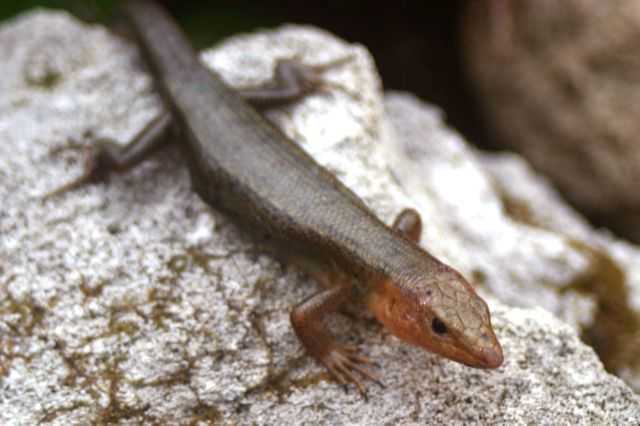
Bermuda skinks may not give you the warm fuzzy feeling at first glance, but they do feast on beetles and pesky cockroaches so that's got to count for something. They are also excellent rock and stone climbers but avoid climbing plants and trees. Bermuda skinks are endemic to Bermuda, meaning they are only found in Bermuda. Bermuda skinks have not been extensively studied so not much is known about these elusive reptiles.
Why Bermuda Skinks Need Our Help
Bermuda skinks are listed by the IUCN as critically endangered, that's one level below extinct in the wild. I find it hard to believe that such a small harmless animal who exists off of insects can be in such great danger. It just goes to show how destructive humans can be. There are a few pockets of Bermuda skink populations with the smallest at 23 individuals and the largest at 400 individuals.
Loss of habitat is the Bermuda skinks biggest threat with expanded agriculture and residential buildings being the two largest causes. Introduction of predators and trash are further threatening Bermuda skinks.
Help Save Bermuda Skinks
- Support the Bermuda Audubon Society which works to protect local species and create nature reserves
- If you live in Bermuda volunteer at the Bermuda Aquarium, Museum and Zoo on a skink project
- If you live in Bermuda or are visiting Bermuda, at a minimum ensure that you do not litter but try and reduce your waste as much as possible
- Donate to the Bermuda Biodiversity Project
Photo courtesy of: Applied Herpetology Special Issues






